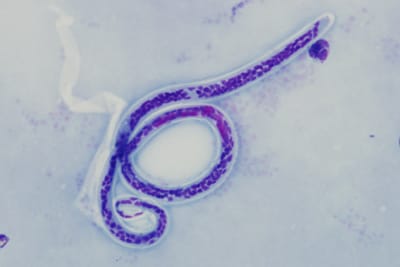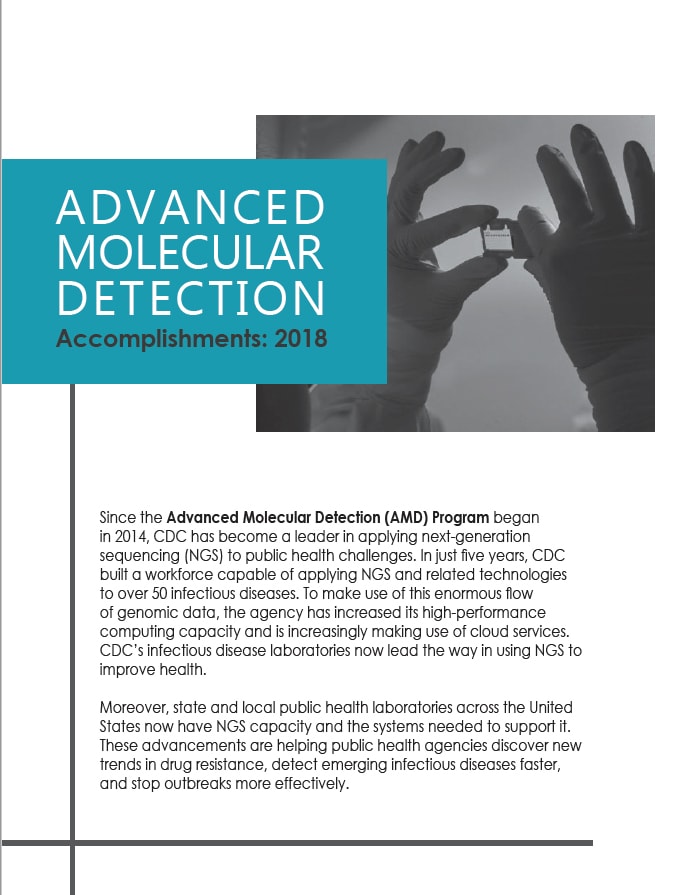AMD Activities: 2018
Posted on Tuesday, September 18, 2018
Diseases caused by parasites are notoriously difficult to diagnose. But in a journal articleexternal icon published today, scientists at the U.S. Centers for Disease Control and Prevention (CDC) report that they have developed a new laboratory method that has the potential to shift that paradigm. The method, called Universal Parasite Diagnostic assay, or UPDx, could revolutionize parasitic diagnostics by selectively detecting parasite DNA in a clinical blood sample without interference from human DNA. CDC scientists believe UPDx may be applied in the future to other pathogens and disease processes. Because of this potential, CDC has applied for a patent on this method with plans to make it available to other researchers at no charge.

CDC scientists used AMD methods to develop UPDx, a diagnostic method that can detect DNA from parasites, such as Wuchereria bancrofti, in blood. This method could revolutionize diagnosis of parasitic diseases in humans.
Parasites Prove to Be Wily Foes
Parasites have devised a variety of ways to infect human hosts, invading our bodies through contaminated foods or unfiltered drinking water, insect bites, unprotected sex, or even directly through our skin. Once parasites get inside our bodies, they can cause an array of conditions including severe diarrhea, neurological disorders, skin ulcers, systemic disease, encephalitis, and sometimes death.
While parasitic diseases occur most often in people living in the tropics and subtropics, we continue to see parasitic infections in people returning to the United States from foreign travel. Proper diagnosis is the essential first step to helping people get the treatment they need. Until now, methods of parasite diagnosis were labor-intensive and didn’t always identify the parasite that was making someone sick.
AMD Program Supports Open Science
CDC’s Advance Molecular Detection (AMD) Program provided funding for development of UPDx. Scientists from CDC’s Division of Parasitic Diseases and Malaria used two important AMD tools—next generation genomic sequencing and bioinformatics—to create this faster, more accurate parasite detection test. UPDx will make it easier to identify the parasite that is making someone sick and provide important genetic information needed to treat or control these infections, all in one test.
The AMD program and CDC feel it is important to make this testing process available to researchers and other laboratories. Patenting the process will keep UPDx in an open forum where it can be shared for other public health applications. Integration of this AMD technology into our arsenal of public health diagnostic tools will give us the ability to rapidly and effectively diagnose parasitic diseases and ensure American’s health and safety.
